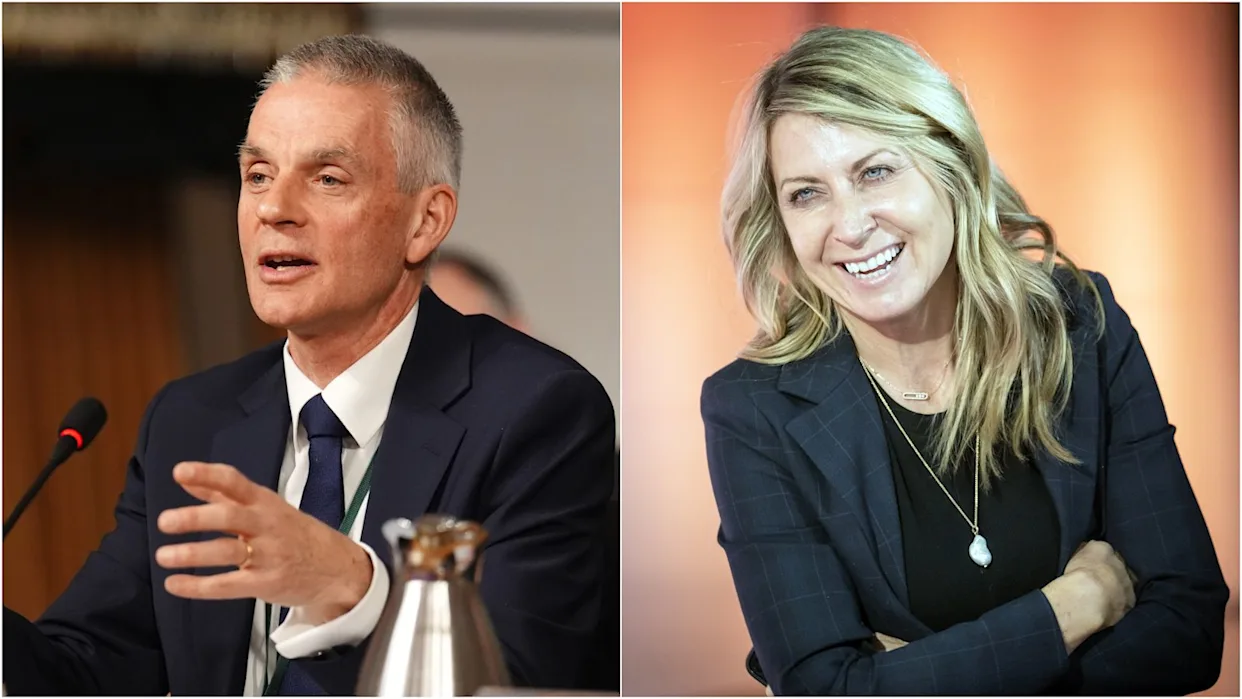Trump's $1 Billion Obligation: The Jan. 6 Speech Edit BBC Showdown That Sparked Resignations and Fury
President Donald Trump spoke out this week about his concerns regarding the BBC's editing of his January 6, 2021 speech. In an interview with Laura Ingraham on Fox News, he stated he feels an obligation to pursue legal action against the broadcaster, alleging they misrepresented his remarks. This comes after his legal team sent a demand for $1 billion in damages, a retraction, and an apology.
Trump described his original speech as measured and aimed at encouraging peaceful support for lawmakers at the Capitol. He claimed the BBC's Panorama documentary, broadcast in October 2024, altered the content by combining excerpts separated by over 50 minutes. The edit linked his comment about walking to the Capitol with a later statement urging supporters to "fight like hell," which his team says removed important context about maintaining order.
The BBC has acknowledged the issue and is reviewing the demand. A spokesperson noted they would respond in due course. This development follows Trump's pattern of legal challenges against media outlets over coverage he views as unfair.

Former BBC leaders Tim Davie and Deborah Turness pictured side by side — their resignations mark a dramatic fallout from the Panorama documentary edit of Donald Trump’s January 6 speech.
Details of the Panorama Edit at the Center of the Dispute
The controversy involves a specific edit in the BBC's pre-election Panorama program. Internal memos, reported by the Daily Telegraph, show editors discussed combining parts of Trump's 76-minute speech to highlight certain themes. The resulting segment presented the remarks in a way that suggested direct encouragement of unrest, according to Trump's representatives.
Full transcripts of the speech include multiple references to peaceful actions, which were not included in the clip. The change drew criticism from Trump's supporters, who argue it affected public understanding of the events. The documentary reached a wide audience, prompting discussions about editorial standards in historical reporting.
This case highlights ongoing debates in journalism about balancing context with compelling storytelling. For those following U.S. politics, it serves as a reminder of how presentation can influence perceptions long after the fact.
BBC Responds: Resignations and Internal Review
The matter has prompted changes within the BBC. Director-General Tim Davie and head of news Deborah Turness resigned earlier this week, citing the need for fresh leadership amid the scrutiny. In a message to staff, Davie expressed regret for the oversight but emphasized the organization's commitment to accurate reporting.
BBC Chair Samir Shah issued a statement apologizing for what he called a lapse in judgment. The network plans to address Trump's demands through legal channels while conducting an internal review of editing practices. UK government officials, including Culture Secretary Lisa Nandy, have commented on the BBC's role, stressing accountability during upcoming charter discussions in 2027.
Nandy noted in Parliament that while errors must be addressed, the broadcaster remains an essential public resource. The Culture Select Committee may call BBC leaders for further testimony.
The Financial Implications: Legal Costs and Public Funding Pressures
At its core, this dispute carries financial weight for the BBC, funded largely by the £169.50 annual TV license fee paid by UK households. High-stakes lawsuits like Trump's often lead to significant legal expenses, even if awards are limited under UK law to around £350,000. The broader costs, including preparation and insurance, can add up quickly.
Analysis reviewed by Finance Monthly indicates that similar media disputes have increased operational expenses for public broadcasters by 5-10% in recent years. Trump's settlements from U.S. cases in 2025 have exceeded $90 million, according to reports from the Los Angeles Times. Media analyst Dan Alexander, writing for Forbes, observes that these actions create a "settlement economy" for plaintiffs, while forcing defendants to allocate funds away from content creation.
For UK viewers, this could mean gradual increases in license fees to cover such risks, potentially by £10-20 over the next few years. It affects how public money supports programming, possibly leading to more cautious approaches in investigative work. A comparable example is NPR in the U.S., where coverage-related controversies contributed to a 12% drop in donations, resulting in scaled-back local news efforts.
To navigate this as a consumer, consider supplementing BBC viewing with independent sources like journalist-led newsletters on platforms such as Substack, often available for £5-10 per month. These provide diverse perspectives without relying solely on public funding. Also, follow updates on the 2027 charter renewal through the UK Parliament website and participate in consultations to influence how fees are managed.

President Donald Trump signs a wave of controversial pardons in the Oval Office, amid the ongoing feud with the BBC.
Trump's Approach to Media Disputes: A Consistent Strategy
Trump has frequently used legal threats to address what he sees as biased reporting. Past cases against CBS, ABC, and The New York Times have resulted in settlements totaling millions. Experts suggest the BBC may seek to resolve this through negotiation, given differences in U.S. and UK legal frameworks.
The outcome could influence how broadcasters handle archival footage in the future. For Trump, the action underscores his efforts to shape the narrative around key moments in his career.
This situation reflects broader challenges in media, where trust depends on clear standards. As the BBC prepares for its charter review, the focus will likely remain on strengthening processes without compromising independence.
Key Points from the Dispute
- Trump demands $1 billion (£759 million) from the BBC for editing his January 6 speech in a Panorama documentary, calling for a retraction and apology.
- BBC executives Tim Davie and Deborah Turness have resigned, with chair Samir Shah apologizing for the error.
- Leaked memos detail the edit's creation, amid debates on context versus impact before the 2024 election.
- The issue ties into reviews of BBC impartiality, with charter renewal set for 2027.
- Trump frames the potential suit as a necessary step to correct the record.
Ultimately, the exchange points to the careful balance required in journalism, ensuring facts guide the story without undue alteration.
Readers' Common Questions
What Is Donald Trump's Net Worth in 2025?
Forbes estimates Donald Trump's net worth at $6.5 billion as of November 2025, driven by stakes in Truth Social and real estate assets. Bloomberg's assessment reaches $7.75 billion, incorporating gains from his media company and licensing agreements post-2024 election. These figures reflect a mix of volatile markets and policy influences, such as potential tariffs that could add or subtract billions. For the average person, this illustrates how public figures leverage influence for financial growth, impacting sectors from tech to property that touch daily investments and news consumption.
Why Is Trump Pursuing Legal Action Against the BBC?
Trump's legal demand against the BBC arises from their editing of his January 6, 2021 speech in the Panorama program, where segments were combined to imply encouragement of violence. He argues this defamation, timed near the 2024 election, distorted his message of peaceful protest. With calls for full context omitted, his team seeks damages to affirm the speech's intent. This fits his history of challenging media portrayals, aiming to protect his public image and discourage similar edits in coverage of polarizing events.
What Impact Might This Have on BBC Funding and Viewers?
Though unlikely to reach $1 billion due to UK libel limits, the lawsuit could cost the BBC £10-20 million in fees, straining its £5 billion budget from license payers. Trump's U.S. filings may push for settlement, similar to his $90 million in 2025 wins. This could prompt stricter editing rules and fee adjustments by 2027. Viewers might see shifts in content priorities, so building habits like cross-checking sources helps maintain informed viewing without added costs from resolved disputes.













